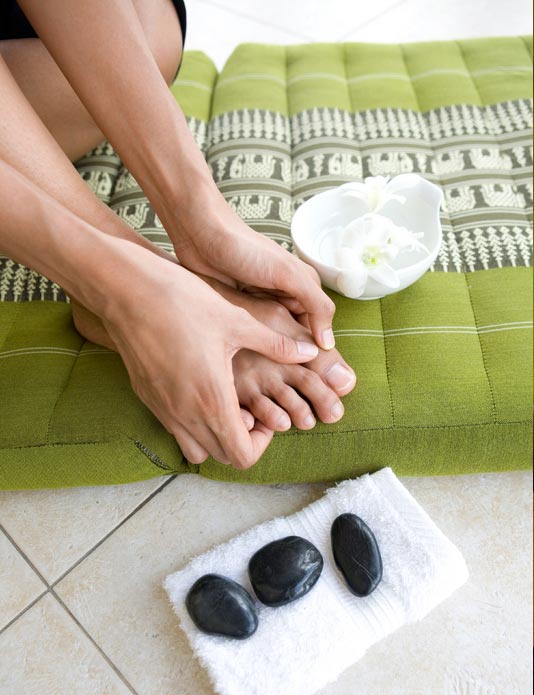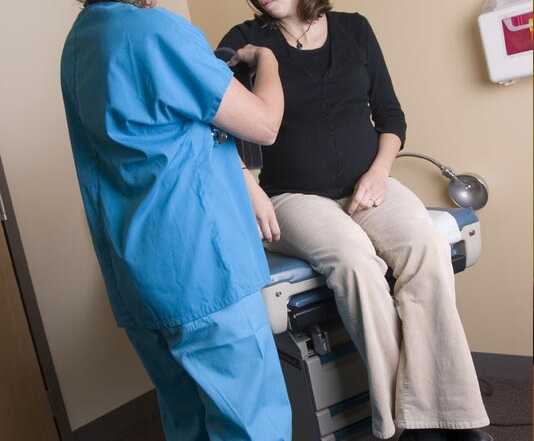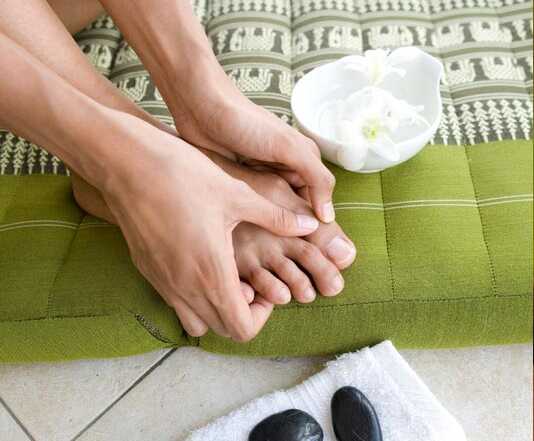
It is important to take special care of your feet when you have diabetes. Poor care can lead to serious problems, such as food removal (amputation).
Diabetes affects your feet in two ways:
Nerve damage may: cause your feet to lose feeling. If this happens, a simple cut or sore can go unnoticed and lead to problems; change the shape of your feet, causing pressure point. Blisters, sores, and foot ulcers may form in these areas.
Poor blood flow to the feet causes injuries to heal more slowly.
What You Can Do:
One of the most important things you can do is keep your blood sugar as close to normal (80 to 120 ml/dL) as possible. The Diabetes Control and Complications Trial (DCCT), a 10-year study of 1,441 insulin-dependent patients, showed that keeping blood sugar as close to normal as possible can reduce the risk of nerve damage by up to 60%. (ask your doctor for more information about the test results.)
These Simple Steps Of Foot Care Can Help:
- Check Your Feet Every Day.
Look at the tops and bottoms. Check for scratches, cracks, cuts, or blisters – especially between the toes and around the heel. Check for ingrown toenails, corns, calluses, and sores. Also look for changes in color, temperature, or shape. If you notice any of these problems consult your doctor. - Wash Your Feet Every Day With Mild Soap And Lukewarm Water.
Water should be 90 to 95 degrees F. Do not soak your feet. Soaking can cause your skin to dry and crack. Gently dry your feet. Keeping your feet dry can prevent fungus growth. Keep skin from cracking by rubbing a thin coat of oil, lotion, or cream on the tops and bottoms of your feet. Do not apply between your toes. Use a little powder if your feet sweat. - Take Care Of Your Toenails.
Cut your toenails after bathing, when they are soft and easy to trim. Cut toenails straight across and smooth with an emery board. - Take Care Of Corns And Calluses.
Gently rub corns and calluses with a pumice stone after you have washed your feet. This will take away extra skin that has built up. Do not use corn removers, callus removers, razor blades, or knives on corns or calluses. Always see your doctor if you have these problems. - Protect Your Feet.
Do not walk barefoot, even indoors. Use a sunscreen on the tops of your feet in the summer. Break in new shoes slowly. Wear new shoes for only 1 or 2 hours at a time. Always wear socks or stockings with your shoes. Socks made of cotton or wool feel the best. Wool socks are good for keeping your feet warm and dry. - Keep Your Blood Flowing Well.
If you smoke, try to quit. Smoking decreases blood flow to the feet. Keep blood sugar and blood fat levels normal. Exercise every day. Keep your feet warm, but do not use heating pads or hot water bottles on your feet. Do not wear tight garters or socks. - Work With Your Health Care Team.
Meet with them regularly. Take off your shoes and socks every time you see your doctor or diabetes educator. This will remind them to check your feet. Tell them if you have foot sores that do not begin to get better within a week. Tell them when you are having trouble keeping control of your blood sugar. They can help you find the best way to manage your diabetes.
Planning your Meals
Eating healthy foods is one of the basic tools of diabetes care. [...]
Gestational Diabetes
Thriftway Pharmacy Gestational Diabetes Gestational diabetes mellitus (GDM) is a [...]
Traveling with diabetes
Are you going on vacation? ... taking a business trip? ... visiting [...]
Caring for your feet
It is important to take special care of your feet when you [...]
Exercising with diabetes
Exercise is good for everyone. But it can be especially good for [...]
Diabetes Center
If you have diabetes, you know that it can cause serious problems, [...]







